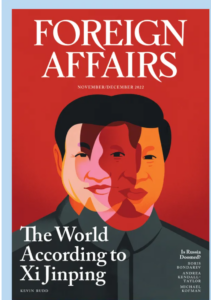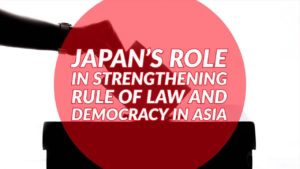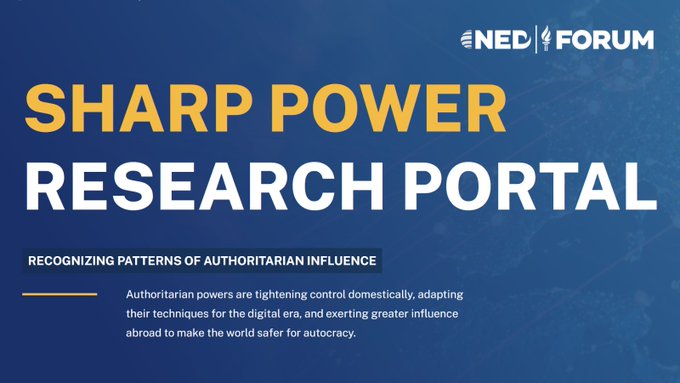Has China reached an authoritarian tipping point?
A new series from Newsweek uncovers what China’s Communist Party is doing overseas to achieve its stated goal of superpower status and global dominance by 2049—and how it is doing it, writes Didi Kirsten Tatlow (above), the author of “China’s Quest for Foreign Technology: Beyond Espionage.”
Mr. Xi’s narrative of economic and political competence continues to be exposed as myth, allowing the U.S. to work with allies to remind unaligned nations of the value of the Western model, the Hudson Institute’s Thomas J. Duesterberg writes for the Wall Street Journal. It also should help convince often recalcitrant allies—in the EU and elsewhere—not to relent on combating Chinese mercantilism.
Domestic and international actors alike are highlighting the regime’s vulnerability to sanctions and other curbs on its ability to import essential supplies.
 “China has a high degree of foreign dependence on some important mineral resources, and once the international situation changes, it will certainly affect economic security or even national security,” Chinese Natural Resources Minister Wang Guanghua told state media, the South China Morning Post reports.
“China has a high degree of foreign dependence on some important mineral resources, and once the international situation changes, it will certainly affect economic security or even national security,” Chinese Natural Resources Minister Wang Guanghua told state media, the South China Morning Post reports.
The West’s democracies should also consider the strategic implications of close economic relations with autocracies like China, NATO Secretary-General Jens Stoltenberg said Thursday at a Norwegian business conference.
“It is dangerous to depend on authoritarian regimes. It was not long ago that many believed that buying gas from Russia was purely a commercial matter,” he said. “We must not repeat this mistake with other authoritarian regimes, not least China.”
Japan’s trade and industry minister said on Thursday that post-Cold War free trade and economic inter-dependence had bolstered authoritarian regimes and the United States and like-minded democracies should counter them with a “new world order,” Reuters reports.
“Authoritarian countries have amassed tremendous power, both economically and militarily,” Japan’s Minister of Economy, Trade and Industry Yasutoshi Nishimura said in a speech at the Center for Strategic and International Studies in Washington. Japan is this year’s rotating head of the G7 industrial democracies and is scheduled to host the group’s summit in October.
 “We must rebuild a world order based on the fundamental values of freedom, democracy, human rights and the rule of law,” he said, adding that “countermeasures” might be necessary to help countries and regions that are the target of restrictive trade practices by authoritarian regimes.
“We must rebuild a world order based on the fundamental values of freedom, democracy, human rights and the rule of law,” he said, adding that “countermeasures” might be necessary to help countries and regions that are the target of restrictive trade practices by authoritarian regimes.
Yet illiberal trends across Asia pose a long-term risk to US interests, and the rising gap in values between the US and its military partners in Asia could also drive mutual mistrust and even present China with an opportunity to flip the latter against the West, argues analyst Mohamed Zeeshan.
Under the circumstances, Biden should replace America’s current two-pronged strategy of economic decoupling and military balancing with a return to globalisation. Rather than employing a dubious ally-versus-rival framework, Biden should look to institute two broad principles in US policy, he writes for the SCMP:
- walk back the widespread imposition of sanctions and tariffs and encourage economic interdependence with all regimes; and
- hold military allies to a higher standard on liberal values and use the allure of military ties to encourage liberal democratic reforms in those countries.








